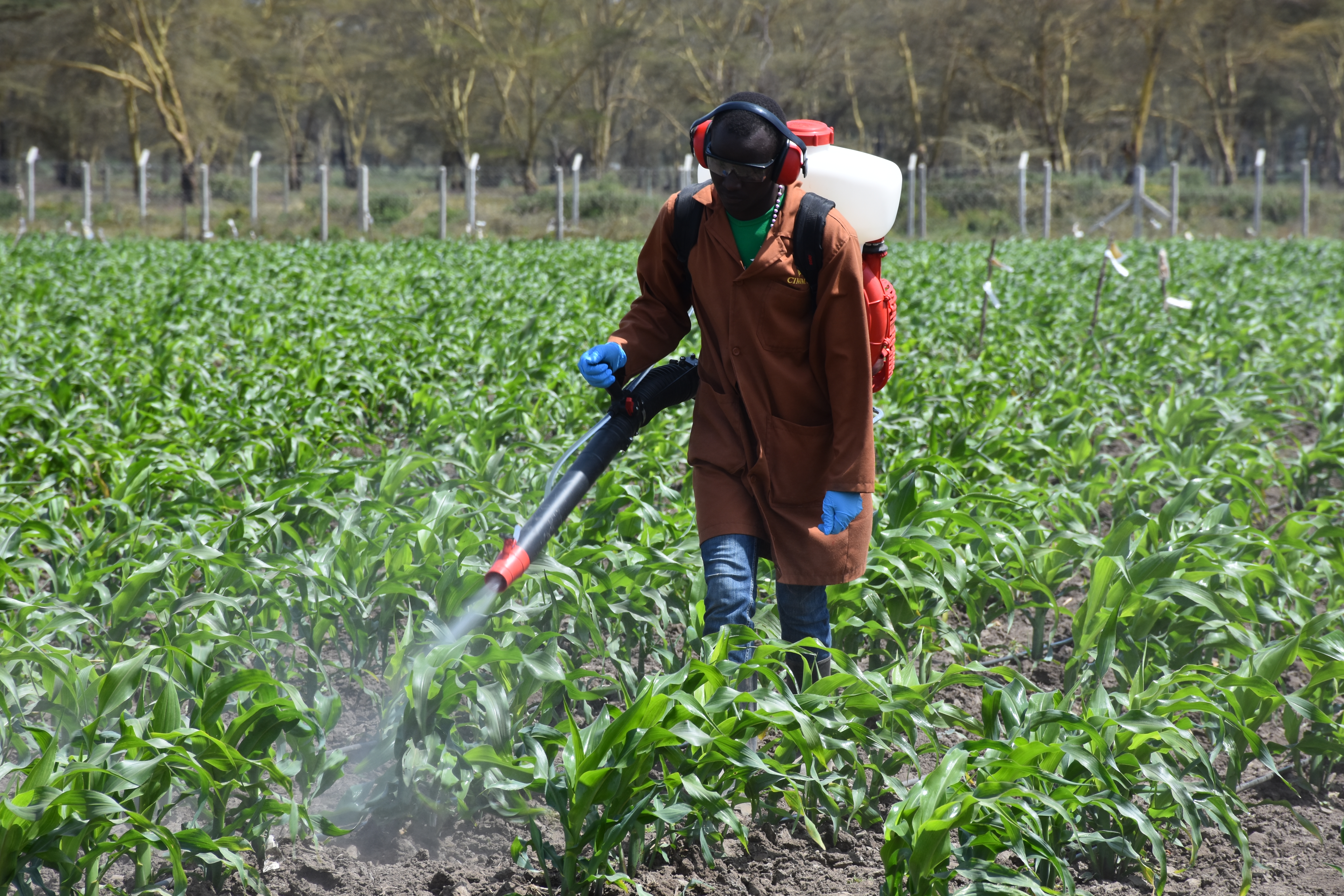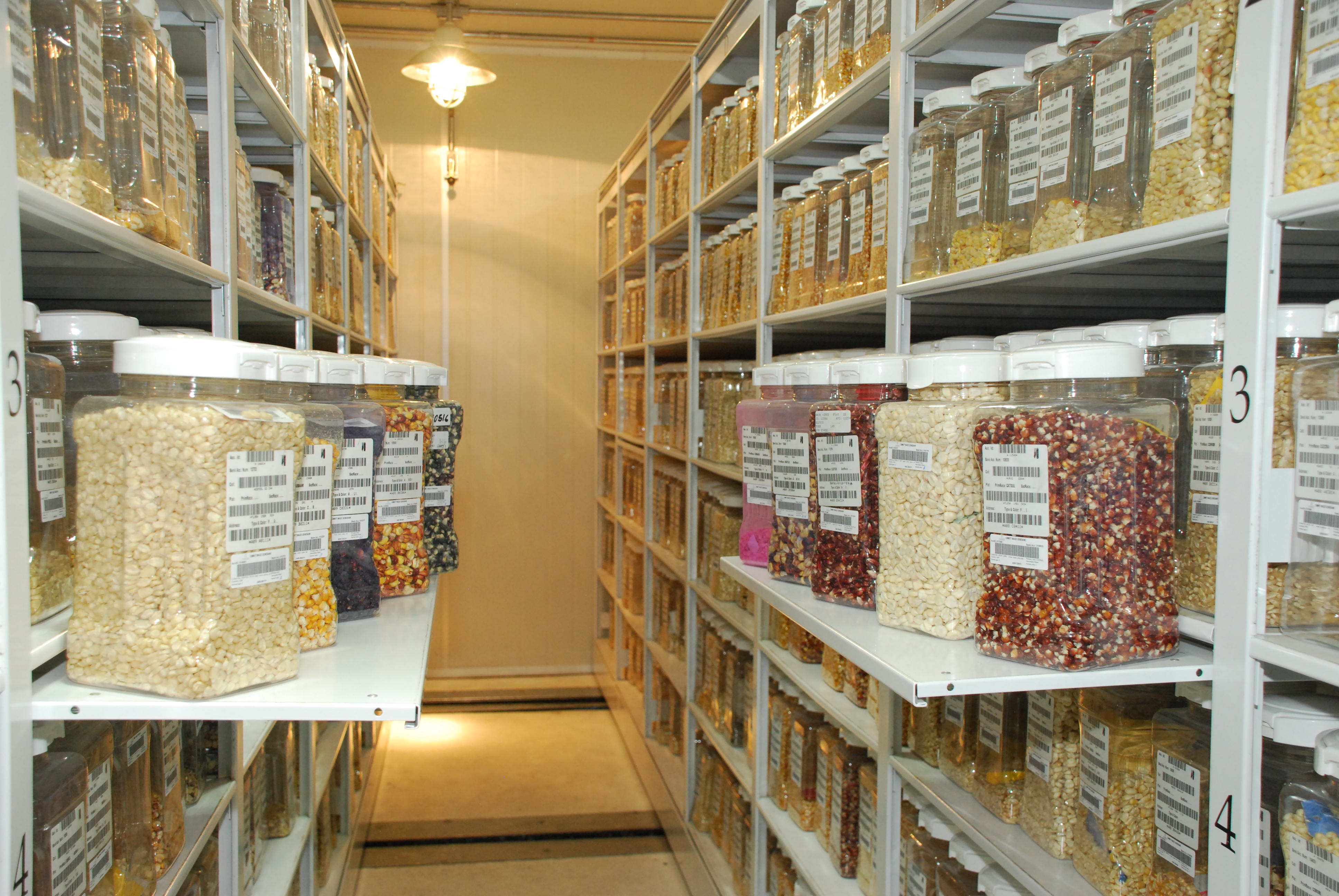Ethiopia
For more information, contact CIMMYT’s Ethiopia office.
New evidence shows forests help reduce malnutrition
 Nutrition, health and food security
Nutrition, health and food security
Living near forests can help locals increase their dietary diversity, and combat hidden hunger.
New online portal offers information to curb maize lethal necrosis in Africa
 Innovations
Innovations
The new maize lethal necrosis online portal provides up-to-date information and surveillance tools to help researchers control and stop the spread of the deadly disease.
Breaking Ground: Dagne Wegary at a busy intersection on the maize value chain
 Nutrition, health and food security
Nutrition, health and food security
As a maize seed system specialist, Dagne Wegary works at the nexus between breeding science and actual delivery of improved seed to farmers.
Fall armyworm devastates crops in sub-Saharan Africa: A quick and coordinated regional response is required
 Nutrition, health and food security
Nutrition, health and food security
The head of CIMMYT’s Global Maize Program highlights the potential impact of the fall armyworm pest and how CGIAR researchers are contributing to a quick and coordinated response across the Africa.
Q+A: Agricultural mechanization fuels opportunity for youth in rural Africa
 Capacity development
Capacity development
Small-scale agricultural mechanization is showing signs it has the potential to fuel rural employment for youth in sub-Saharan Africa, according to researchers.
Gender and development specialist Rahma Adam: Aiding African women to build household food security
 Gender equality, youth and social inclusion
Gender equality, youth and social inclusion
In a special interview to mark International Women’s Day, CIMMYT gender specialist Rahma Adam detailed how her research aims to improve the agricultural productivity of women in south and eastern Africa.
Can sub-Saharan Africa meet its future cereal food requirement?
 Nutrition, health and food security
Nutrition, health and food security
To satisfy the enormous increase in demand for food in sub-Saharan Africa by 2050, cereal yields must increase to 80 percent of their potential.
Wheat rust poses food security risk for global poor, says DFID’s Priti Patel
 Nutrition, health and food security
Nutrition, health and food security
Wheat rust monitoring efforts are not only keeping the fast-spreading disease in check, but are deployed to manage other crop diseases, said a scientist at a scientific meeting in London.
NuME: a key actor in agricultural innovation systems in Ethiopia
 Nutrition, health and food security
Nutrition, health and food security
A CIMMYT project was selected as a key actor in agricultural and rural innovation in Ethiopia by CDAIS.
Emergency seed project brings relief to drought-affected farmers in Ethiopia
 Climate adaptation and mitigation
Climate adaptation and mitigation
As Ethiopia struggles with its worst drought in 50 years, farmers pin their hopes on seed delivered through emergency seed projects.
Seeding the future: Emergency support for drought-affected farmers in Ethiopia
 Capacity development
Capacity development
The 2015-2016 El Niño has led to drought leaving 10.2 million people – more than 1 in 10 Ethiopians – in need of emergency food assistance.
Maize seed systems in Africa: Understanding the basics
 Climate adaptation and mitigation
Climate adaptation and mitigation
Since 2006, CIMMYT has developed 200 drought-tolerant varieties and hybrids, many of which possess desirable traits such as resistance to major diseases.
From A to Z: Developing nutritious maize and wheat at CIMMYT for 50 years
 Climate adaptation and mitigation
Climate adaptation and mitigation
Over the past 50 years, various research activities have been undertaken to boost protein quality and micronutrient levels in maize and wheat to help improve nutrition in poor communities.
African ambassadors to Zimbabwe support improved agriculture technologies
 Nutrition, health and food security
Nutrition, health and food security
Several African nation ambassadors to Zimbabwe pledged to step up support for improved agriculture technologies.
Harnessing maize biodiversity for food security, improved livelihoods in Africa
 Capacity development
Capacity development
Diverse, stress tolerant maize varieties are benefiting smallholders throughout sub-Saharan Africa.

